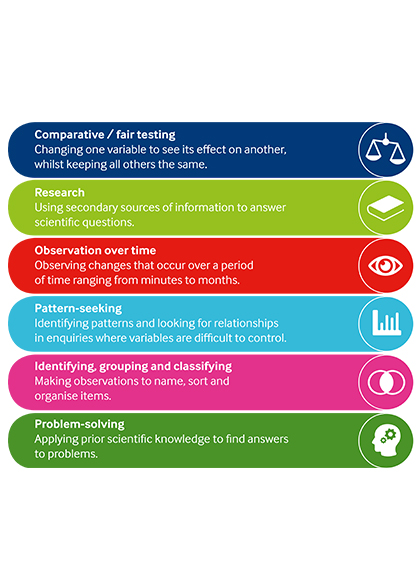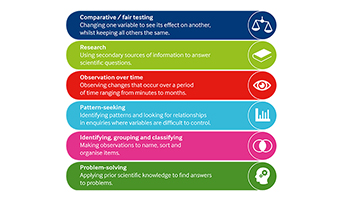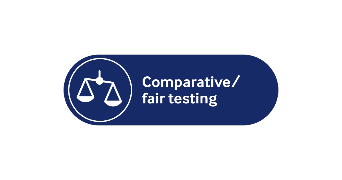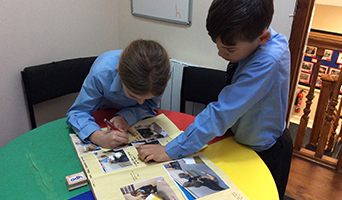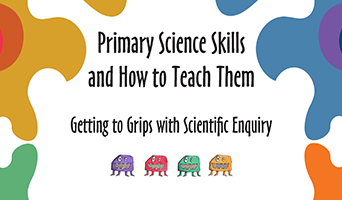PSTT has designed the following symbols (for consistency in their own resources) that could be displayed in your classroom or staffroom to help introduce different types of enquiry approaches to science learning.
These symbols are ©Primary Science Teaching Trust 2019 but may be freely used by teachers in schools for educational purposes, subject to the source being credited.
When using symbols, please do not:
- Re-scale or warp, shear or otherwise alter or distort the proportions of any original artwork
- Add any visual effects to the symbols (e.g. shadows)
- Alter the colours
- Change the symbols’ orientation
- Add any text to the symbol
- Add gradations

